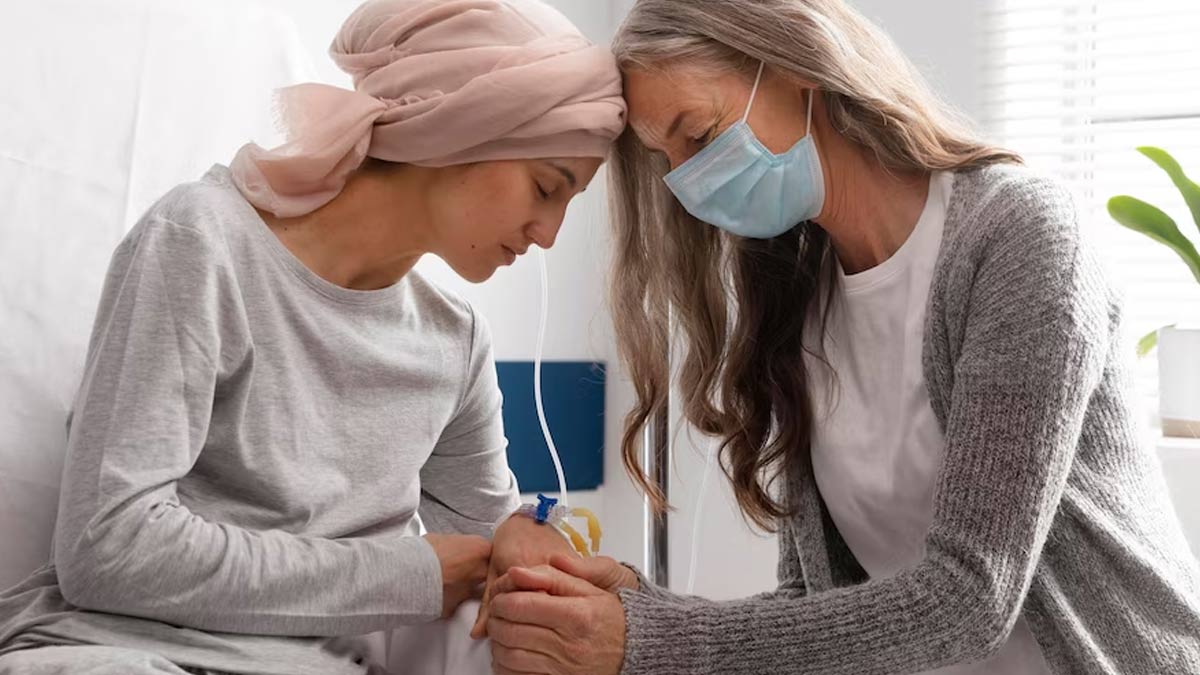
The disparity faced by Indian women is once again the talk of the town, as The Lancet underscored with proof of how gender discrimination has deadly real-life consequences beyond casual sexism and stereotyping. In a report titled ‘Women, Power and Cancer,’ The Lancet revealed a shocking statistic. Around 63% of deaths of Indian women dealing with cancer in India could have been prevented if sufficient efforts were made to prevent risk factors and screen for cancer. Additionally, 37% of deaths could have been averted had appropriate measures been taken to provide timely treatment to women living with cancer in India.
Societal Bias Towards Women’s Health

Concluding their study, the Lancet researchers said, “Gender is a social construct that permeates and influences all aspects of our society. Gender inequality and health inequities are shaped by patriarchy and colonialism that maintain and reinforce unequal power dynamics to the detriment of women and other marginalised communities, restricting their access to knowledge, decision-making, and economic resources.”
“Gender norms, roles, relations, and their intersection with other power hierarchies influence women's exposures to known and unknown cancer risk factors and access to accurate health information and quality health services, and impacts their experiences with cancer, whether directly as a patient or indirectly as care providers,” the researchers added.
Also Read: Study Finds Most Cases Of Breast Cancer In Women Under 40: Expert Lists Facts About Breast Cancer
The study informed that around 4.03 million cancer deaths of Indian women as of 2020 were treatable, and almost 6.9 million were preventable. The Lancet researchers attributed societal apathy, lack of knowledge, awareness, and absence of quality primary care as the major reasons for these preventable deaths, as these factors resulted in unnecessary delays in access to cancer prevention, detection and care. Dr Ishu Kataria, Commissioner, Lancet, further attributed family apathy, personal indifference towards health issues, and financial lack as a cause of the humongous burden of preventable cancer deaths among Indian women.
Bridging The Gaps In Women's Health In India

Dr Kataria urged the need for a feminist approach to cancer in India, and said, “We need cancer to be seen as a priority issue in women’s health. Women interact with cancer in various ways, not only as people living with the disease but also as unpaid caregivers, individuals participating in cancer prevention and screening at the national level, healthcare providers, researchers and policymakers. In this context, they face gender bias and discrimination on multiple fronts, be it due to their age, ethnicity, socio-economic status, gender identity or sexual orientation. This hinders their ability to seek good quality care for both diagnosis and treatment.”
The Lancet study advised that their findings should be sufficient to prove that it's high time that Indian healthcare forces level the playing field. It is time to form a comprehensive ‘framework for cancer that is inclusive of the lived and diverse experiences of women in a gender-responsive health system, and of a more equitable cancer workforce and research ecosystem.’
Also Read: Pancreatic Cancer In Women: Expert Lists Lifestyle Habits That Increase The Risk
The study highlighted that gender disparity in terms of the availability of healthcare for women in India can be achieved only through ethical values that ensure justice, kindness, and inclusivity. These factors should be applied not only in research but also during policymaking.
Concluding their study, the Lancet researchers challenged other researchers, policymakers, and care providers to reflect on how they position themselves on matters of gender equality when it comes to providing healthcare. The study invited all readers to consider their position on the gender and social hierarchies that are rampant throughout the healthcare industry and acknowledge that scientific endeavours can never maintain a purely objective stance, even if they have the best of intentions unless they give up their inherent sexism and treat all cancer patients equally.
Also watch this video
Read Next
Jagran New Media Launches a Brand New Venture Rocketship Films to Level Up Audiovisual Storytelling
How we keep this article up to date:
We work with experts and keep a close eye on the latest in health and wellness. Whenever there is a new research or helpful information, we update our articles with accurate and useful advice.
Current Version